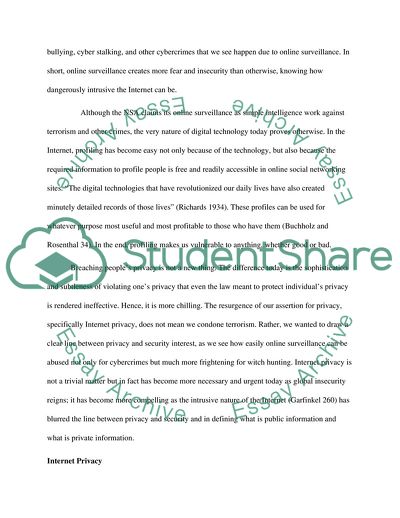Cite this document
(State Surveillance Practices by Edward Snowden Essay Example | Topics and Well Written Essays - 1750 words, n.d.)
State Surveillance Practices by Edward Snowden Essay Example | Topics and Well Written Essays - 1750 words. https://studentshare.org/information-technology/1861068-to-what-extent-if-at-all-are-the-state-surveillance-practices-made-public-by-edward-snowden-justifiable
State Surveillance Practices by Edward Snowden Essay Example | Topics and Well Written Essays - 1750 words. https://studentshare.org/information-technology/1861068-to-what-extent-if-at-all-are-the-state-surveillance-practices-made-public-by-edward-snowden-justifiable
(State Surveillance Practices by Edward Snowden Essay Example | Topics and Well Written Essays - 1750 Words)
State Surveillance Practices by Edward Snowden Essay Example | Topics and Well Written Essays - 1750 Words. https://studentshare.org/information-technology/1861068-to-what-extent-if-at-all-are-the-state-surveillance-practices-made-public-by-edward-snowden-justifiable.
State Surveillance Practices by Edward Snowden Essay Example | Topics and Well Written Essays - 1750 Words. https://studentshare.org/information-technology/1861068-to-what-extent-if-at-all-are-the-state-surveillance-practices-made-public-by-edward-snowden-justifiable.
“State Surveillance Practices by Edward Snowden Essay Example | Topics and Well Written Essays - 1750 Words”. https://studentshare.org/information-technology/1861068-to-what-extent-if-at-all-are-the-state-surveillance-practices-made-public-by-edward-snowden-justifiable.


